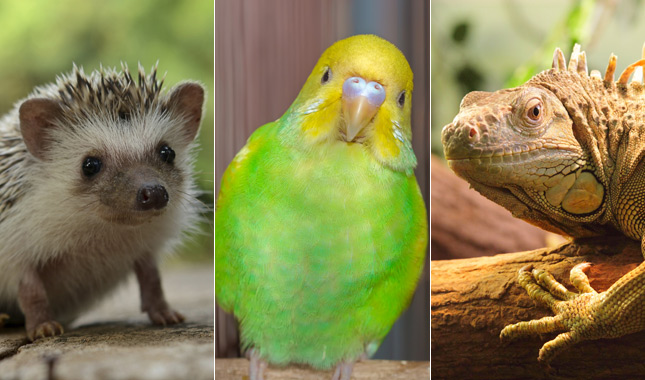Exotic Animals as Pets – Discover the Fascinating World of Keeping Exotic Pets
Introduction: Welcome to the fascinating world of exotic pets! Have you ever considered owning an animal that is unique, intriguing, and out of the ordinary? In this article, we will explore the realm of exotic animals as pets, delving into their characteristics, popularity, considerations, benefits, challenges, and responsible ownership. So, fasten your seatbelts and get ready for an exciting journey into the world of exotic pet keeping.
1. What are exotic animals?
Exotic animals are creatures that are not commonly found as pets and are distinct from the traditional domesticated animals like cats and dogs. They come from diverse habitats and possess captivating features that make them intriguing choices for pet enthusiasts.
2. Popular exotic pets
Exotic pets encompass a wide variety of species, and their popularity varies based on personal preferences. Let’s explore some of the popular categories:
2.1 Reptiles
Reptiles such as snakes, lizards, and turtles have gained popularity as exotic pets. Their unique appearances, low maintenance requirements, and the allure of having a scaly companion make them appealing choices for reptile enthusiasts.
2.2 Birds
Colorful and charismatic, birds like parrots, cockatiels, and macaws have become beloved pets for many. Their ability to mimic sounds, vibrant plumage, and social nature make them fascinating companions.
2.3 Mammals
From adorable sugar gliders to fascinating hedgehogs, the world of exotic mammals offers a range of options. Some mammalian exotics require specialized care, but they can provide a rewarding and enchanting pet ownership experience.
3. Considerations before owning an exotic pet
Before bringing an exotic pet into your life, it’s crucial to consider various factors to ensure a suitable and responsible match for both you and the animal.
3.1 Legal restrictions
Different regions and countries have specific regulations regarding the ownership of exotic pets. It’s vital to research and comply with local laws to ensure you can legally own and care for the animal you desire.
3.2 Special care requirements
Exotic animals often have specific care needs that may differ significantly from traditional pets. Factors such as diet, habitat, temperature, and socialization requirements must be thoroughly understood and met to ensure the animal’s well-being.
4. Benefits of owning an exotic pet
While exotic pet ownership comes with its own set of challenges, it also offers unique advantages that set it apart from conventional pet ownership.
4.1 Educational value
Owning an exotic pet can be an excellent educational opportunity, especially for children. It provides a chance to learn about different species, their habitats, and the importance of conservation efforts.
4.2 Uniqueness and beauty
Exotic pets often possess striking beauty and allure. Their presence can add a touch of elegance and uniqueness to your home, becoming a conversation starter and source of admiration.
5. Challenges of owning an exotic pet
Owning an exotic pet is not without its difficulties. It’s essential to be aware of the challenges and responsibilities that come with caring for these unique creatures.
5.1 Cost
Exotic pets may require specialized habitats, equipment, and diets, which can be costly. Additionally, veterinary care for exotic animals may be more expensive due to the need for specialized knowledge and resources.
5.2 Expertise and knowledge
Caring for an exotic pet requires expertise and knowledge specific to the species. Proper understanding of their behaviors, environmental needs, and potential health issues is crucial to ensure their well-being.
6. Responsible exotic pet ownership
To ensure the welfare of exotic pets and minimize the negative impact on their wild counterparts, responsible ownership practices are of utmost importance. This includes proper research, providing appropriate care, supporting conservation efforts, and avoiding the illegal pet trade.
7. Conclusion
The world of exotic pets offers a thrilling and captivating experience for those who are willing to embrace its challenges and rewards. By understanding the considerations, benefits, and responsibilities involved, you can embark on a journey of discovering the enchanting world of exotic animals as pets.
FAQs
Q1: Are exotic pets suitable for everyone? A1: Exotic pets require specialized care and attention. It’s essential to research and ensure that you have the necessary knowledge, resources, and commitment to meet their unique needs.
Q2: Can I legally own an exotic pet? A2: The legality of owning exotic pets varies by jurisdiction. Make sure to research and comply with local laws to determine if owning the desired exotic pet is allowed in your area.
Q3: Do exotic pets pose a risk to the environment or other animals? A3: Irresponsible exotic pet ownership can have negative consequences for the environment and other animals. It’s crucial to support ethical practices and avoid contributing to the illegal pet trade.
Q4: How do I find a reputable exotic pet breeder or seller? A4: When considering an exotic pet, it’s essential to find a reputable breeder or seller who prioritizes the well-being of the animals. Research local breeders, visit their facilities, and ask for recommendations from trusted sources.
Q5: What resources are available for learning about exotic pet care? A5: Numerous resources, including books, websites, and local exotic pet communities, provide valuable information on exotic pet care. Consult reliable sources and consider joining forums or groups where experienced owners share their knowledge.
Read More: Pet Celebrities :From Furry Friends to Internet Sensations




